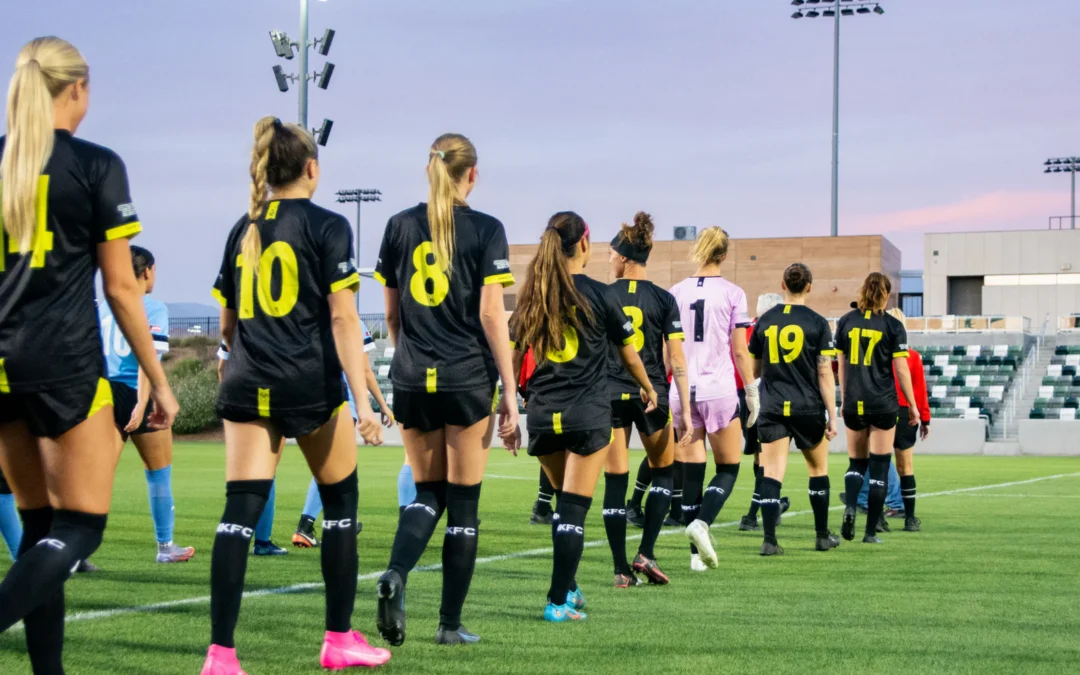As the soccer season approaches, high school athletes are gearing up for the challenges that come with intense competition, long practices, and high-pressure games. To be truly prepared, athletes need to adjust their workout routines to ensure peak performance and minimize the risk of injury. Whether you are new to the sport or a seasoned player, now is the time to fine-tune your fitness to excel during the season. Here are some tips on how to adjust your workout routine as you transition from the off-season to the in-season.
Focus on sport-specific conditioning
It’s time to shift your focus toward sport-specific conditioning as the season draws near. Soccer demands aerobic endurance, agility, explosive power, and recovery. To replicate game conditions, your workouts should include the following:
- Interval training: mimic the stop-and-go nature of a soccer game with interval training. Alternate between periods of high-intensity effort and active recovery. For example, sprint for 30 seconds, then jog or walk for one minute. This will help improve cardiovascular endurance, speed, and recovery time, all of which are crucial for soccer.
- Agility drills: soccer requires quick direction changes, rapid acceleration, and deceleration. There are two different kinds of agility: planned and reactive. Planned agility is a preplanned change of direction, which can be incorporated through cone or ladder drills. Reactive agility is a nonplanned change of direction, which can be incorporated through game-like drills where a player must react to another player or ball.
- Game simulation: try to replicate in-game scenarios with small-sided scrimmages or drills. This will help sharpen your decision-making, improve your passing, and work on your ball control under pressure.
Prioritize Recovery and Mobility
In-season training is often more demanding than off-season workouts, with back-to-back games, practices, and travel. To avoid burnout and injuries, prioritize recovery in your workout routine.
- Stretching and mobility: focus on dynamic stretching before workouts to prepare your muscles for activity and static stretching post-workout.
- Rest days: your body needs time to recover, especially as the intensity of games and practices increases. Don’t underestimate the importance of rest days. Give your muscles time to repair and rebuild, which will help you perform at your best on game day.
- Foam rolling: Use a foam roller to target tight muscles, which will improve circulation, reduce soreness, and enhance recovery.
Maintain Strength Training, But Adjust Intensity
While strength training is essential for building muscle and power, during the season the focus should shift toward maintaining strength rather than building it.
- Lower volume, higher intensity: instead of performing high-volume weight lifting, which can leave you sore, focus on low-volume, high-intensity exercises. Perform compound movements like squats, lunges, and deadlifts, but reduce the number of sets or reps to avoid fatigue.
- Core strength: core strength is vital for soccer players, as it helps with balance, posture, and explosiveness.
- Functional movements: prioritize exercises that mimic soccer movements, such as single-leg exercises and lateral movements. These will help improve stability and coordination, especially when you’re making quick lateral cuts or shielding the ball.
Nutrition and Hydration
Don’t forget about nutrition and hydration, which play a major role in your performance.
- Carbohydrates for energy: soccer requires constant movement, so your body needs fuel. Make sure to include complex carbohydrates (like whole grains, fruits, and vegetables) in your meals to provide long-lasting energy.
- Protein for recovery: protein helps with muscle repair and recovery, especially after tough workouts and games. Include lean protein sources like chicken, fish, tofu, or beans in your diet.
- Hydration: dehydration can significantly affect your performance, leading to fatigue and cramping. Make sure you’re drinking plenty of water before, during, and after practices and games. Electrolyte drinks can also help replenish minerals lost through sweat.
As the soccer season is approaching, it’s essential to fine-tune you’re training to ensure peak performance. Shift to sport-specific conditioning, prioritize recovery, maintain strength, and work on your agility. Most importantly, remember that the key to success lies in consistency and balance.
*Image courtesy of Miss Kicks FC

